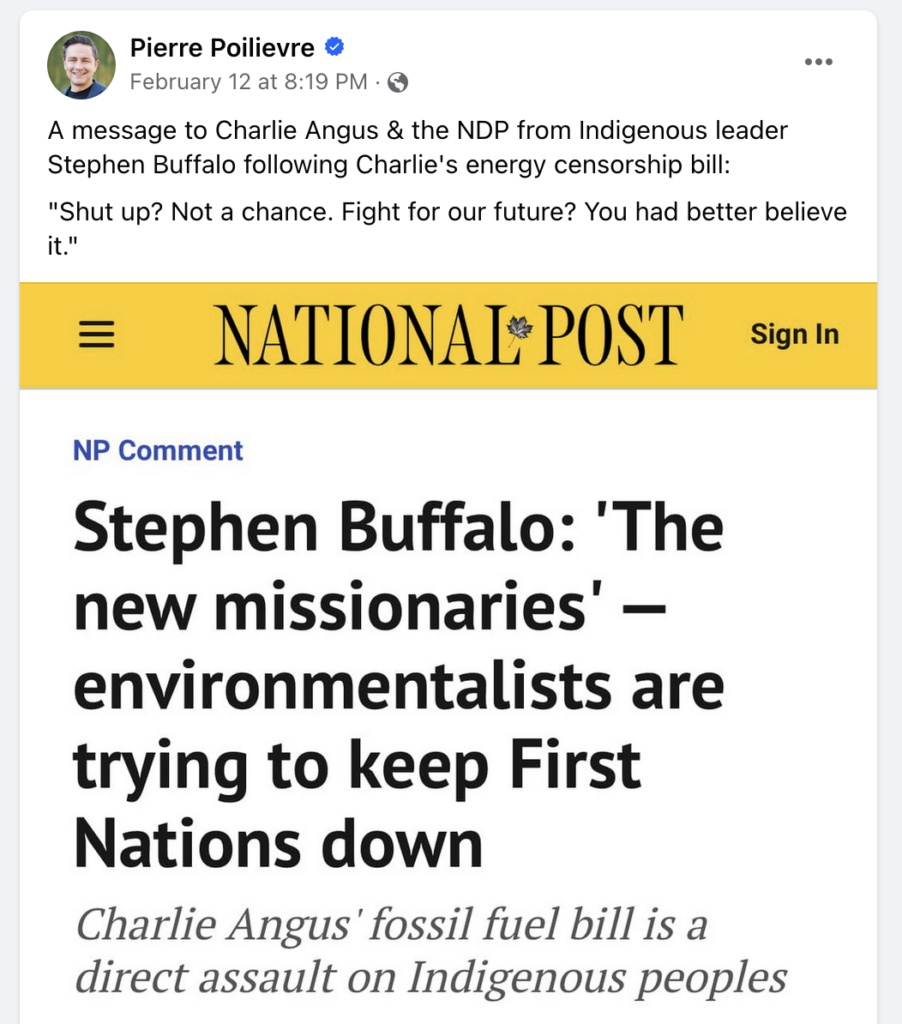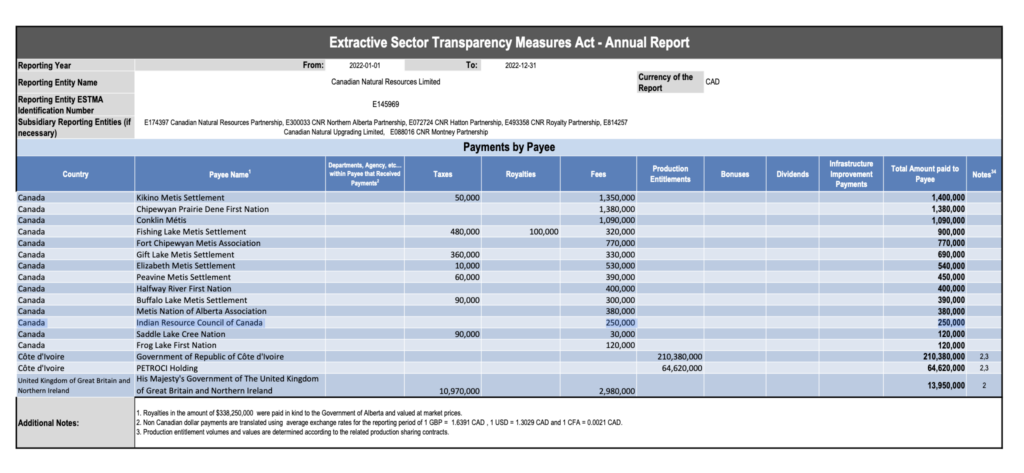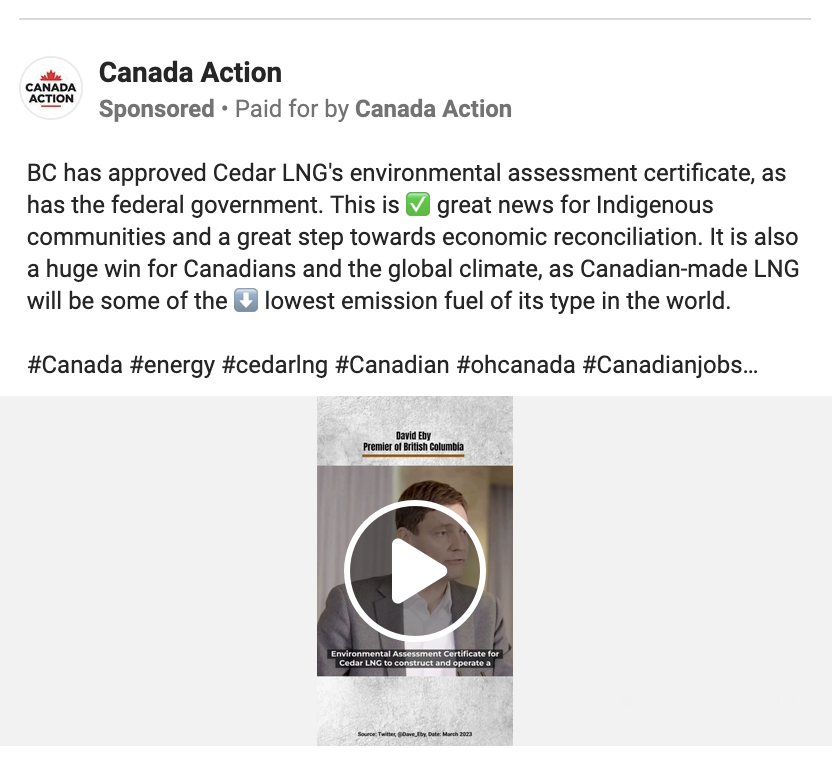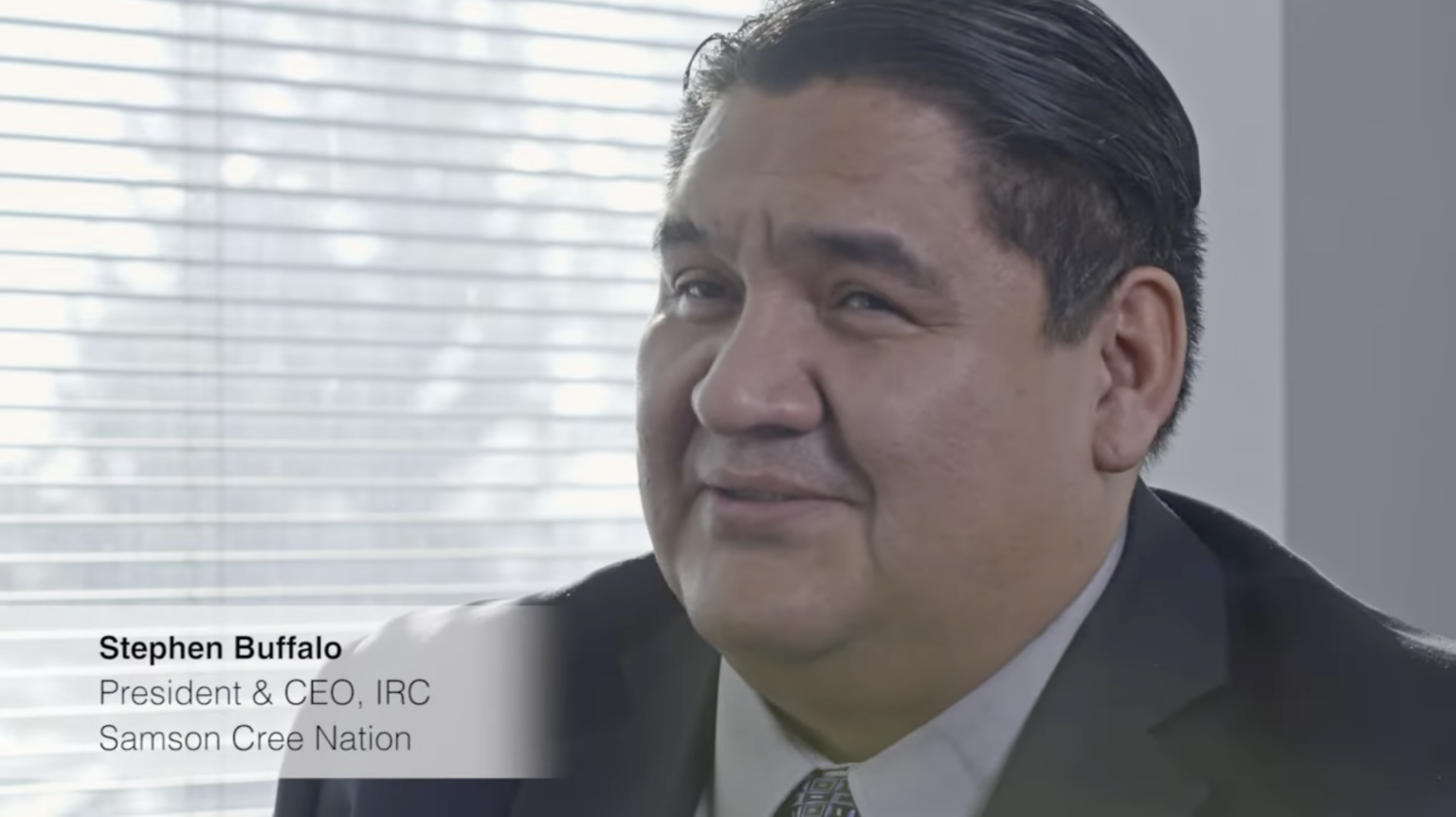After NDP member of Parliament Charlie Angus introduced a bill in February proposing to ban misleading fossil fuel advertising in Canada, the oil and gas advocate Stephen Buffalo wrote an incendiary National Post column attacking the legislation.
Buffalo, a member of the Samson Cree Nation, called Bill C-372 the “most egregious attack on civil liberties in recent Canadian history” and “a direct assault on Indigenous peoples.” He compared it to the Indian Act of 1876, a notorious federal law that attempted to erase the culture of First Nations peoples. His column ricocheted across the internet, where it was shared or referenced by industry groups, conservative columnists and rightwing politicians, including federal Conservative Party leader Pierre Poilievre.

But Buffalo is not a disinterested player in this debate. He is president and CEO of the Indian Resource Council, an Alberta-based group that in recent years has quietly received $450,000 in contributions from Canadian Natural Resources Ltd. (CNRL), one of the country’s top oil and gas producers, according to federal disclosures newly reviewed by DeSmog.
On a recent webinar hosted by an industry organization called the First Nations LNG Alliance, whose affiliate members include Shell Canada and pipeline builder TC Energy, Buffalo appeared to dispute the scientific consensus on climate change, stating that “we still can’t say if CO2 is a pollution…Definitely there’s a lot of fear mongering on what CO2 is and what it does.”
The contributions from CNRL haven’t been made public by the Indian Resource Council, which says it is comprised “of First Nations across Canada that have oil and gas production on their land including those that have the potential for production.” DeSmog previously reported that Buffalo’s group received $200,000 from CNRL between 2020 and 2022.
More recent disclosures on a federal database created via the Extractive Sector Transparency Measures Act, which requires companies to report payments to governments and other groups, shows CNRL gave an additional $250,000 to the Indian Resource Council in 2022.

Neither Buffalo’s organization nor CNRL responded to detailed questions about the financial contribution.
“I definitely respect his right as an Indigenous person to have his own perspective,” Tara Marsden, sustainability director for the Wilp, or house clans, of the Gitanyow Hereditary Chiefs, said of Buffalo. “But he’s just one perspective.”
In British Columbia where Marsden is based, misleading oil and gas advertising is rampant, she said, including ads falsely claiming that liquefied natural gas is a climate solution.
Other ads suggest that all Indigenous people are on board with fossil fuel development, when in reality there is a wide spectrum of opinion within First Nations communities. “We are very diverse in terms of our approaches to self-determination and environmental risk,” Marsden told DeSmog. The Gitanyow Hereditary Chiefs, for example, warned in an open letter last month about the climate impacts of an LNG project proposed by the Nisga’a First Nation.
The Gitanyow First Nation supports the fossil fuel ad ban proposed by Angus, saying that a deluge of factually inaccurate oil and gas advertising obscures the dire consequences of continuing to burn oil and gas — including what could be another devastating wildfire season this year due to usually warm and dry conditions caused by rising global temperatures.
“False ads pose a direct threat to climate progress, and we must have the ability to make informed decisions and mitigate climate impacts,” Marsden said last month.

Angus’ legislation draws inspiration from a 1997 law restricting tobacco marketing. The private member’s bill proposes to outlaw advertising downplaying the dire climate and health impacts of burning oil and gas, as well as overstating the benefits of fossil fuel development to Indigenous communities, which is a common public relations strategy these days.
It predictably triggered outrage among conservatives, as DeSmog previously reported, with politicians like Alberta premier Danielle Smith calling it “lunacy.” But it was Buffalo’s op-ed in the National Post that seemed to gain the most traction. Calgary Herald columnist Don Braid called it “the most damaging criticism.”
The op-ed was referenced in Parliament by Conservative MP Laila Goodridge, boosted online by Alberta Environment Minister Rebecca Schulz and mentioned prominently by the oil and gas advocacy group Resource Works. Cody Battershill, founder of the group Canada Action, which has received $200,000 from the gas company ARC Resources, said during a recent radio debate about the proposed fossil fuel ad ban that “there was an Indigenous leader who compared it to the Indian Act,” an apparent reference to Buffalo’s column.
Marsden said she doesn’t “have any issue” with Buffalo’s Indian Resource Council receiving funding from CNRL. “He’ll go out and find resources to support his work, and if that comes from the oil and gas industry then that’s an alignment of perspectives,” she said.
But Marsden argues it’s false to assume that Buffalo speaks on behalf of all Indigenous people in Canada in his heated attacks against the fossil fuel ad ban. “It’s a disproportionate reaction,” she said. “Let’s tone down the outrage maybe a little.”
Subscribe to our newsletter
Stay up to date with DeSmog news and alerts






